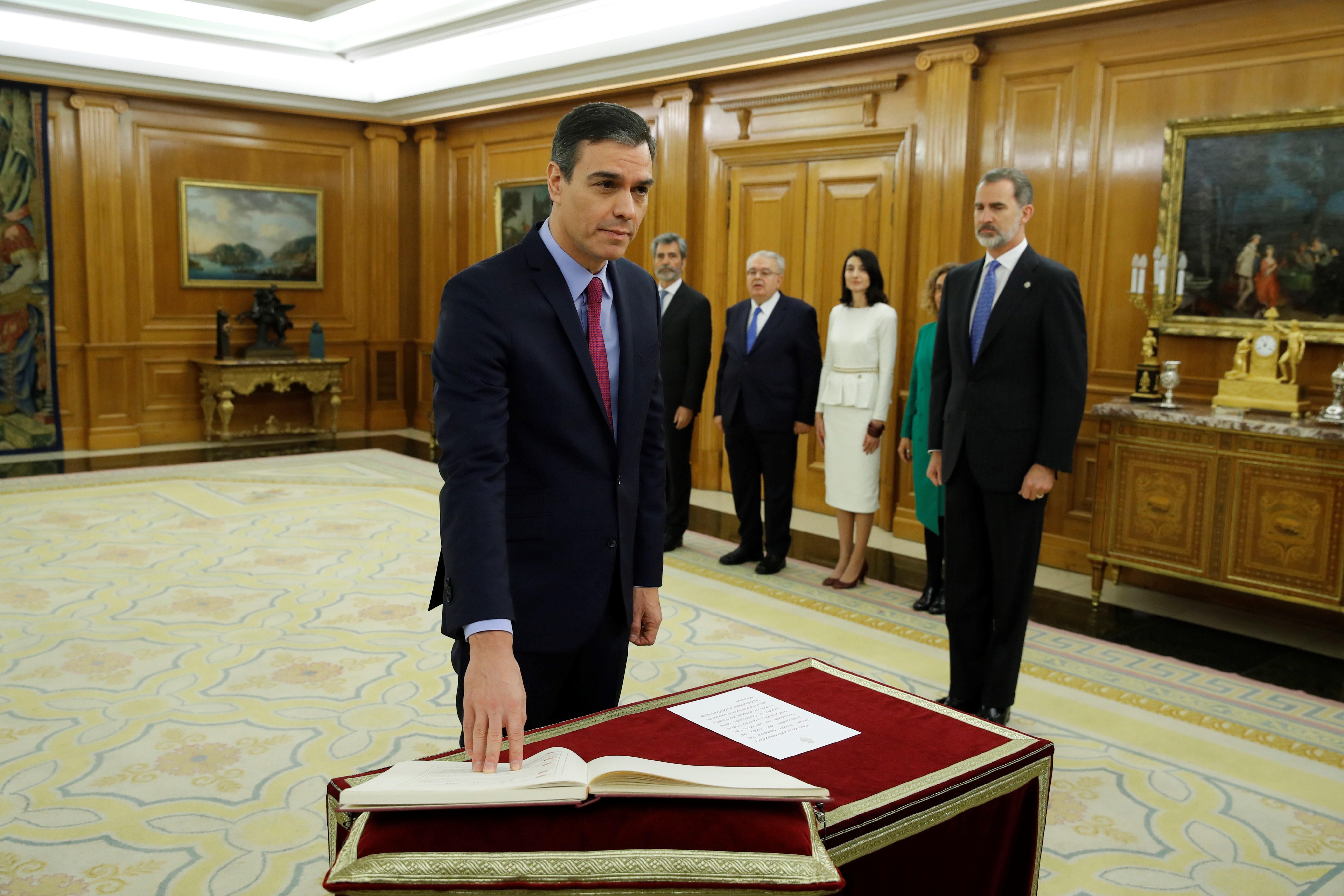Almost a year after he called last year's first general election, Pedro Sánchez has finally formally returned as Spanish prime minister. The day after being invested by the smallest of margins in the Congress, the PSOE leader has completed the final formality: he took the oath of office before king Felipe VI this Wednesday morning in the Zarzuela palace. It's the second time he's done it; the first following the 2018 confidence motion that ousted Mariano Rajoy. Yesterday he got the closest vote and joint fewest votes in favour of any successful candidate for prime minister since the restoration of democracy. It will be the first coalition government in Spain since the Second Republic, and reliant on Catalan independence supporters.
The format of the ceremony, presided over by the monarch and senior figures from the world of law, was the same as Sánchez's first time. No religious symbols were involved, an innovation he introduced. He also chose to "promise", not "swear", "on my conscience and honour to fulfill the obligations of the head of government, with loyalty to the king, to uphold the Constitution and make it be upheld as the fundamental law of the state, as well as to keep secret the deliberations of the council of ministers". Alongside the king were the justice minister, Dolores Delgado, the speakers of the Congress and Senate, Meritxell Batet and Pilar Llop, and the presidents of the General Council of the Judiciary and the Constitutional Court, Carlos Lesmes and José González Rivas.
Changes are to come for the cabinet, which will go from 16 ministers to 20. That will have to wait for next week, however. Despite the rush to invest Sánchez, calling the debate and vote over a public holiday weekend, now everything seems to have calmed down.
The great challenge facing Sánchez is to manage a stable legislature. Between his PSOE and coalition partners Podemos, they only hold 155 of the seats in the chamber, far short of the 176 needed for an absolute majority. Even with the support of smaller parties yesterday, he relied on the abstentions of the 13 members of Catalan pro-independence party ERC and 5 of Basque party EH Bildu to take office. The Catalans have already warned that if he plans to "scam" them, he won't have a legislature. The first great battle, the one which brought him down last year, will be to pass a budget.

